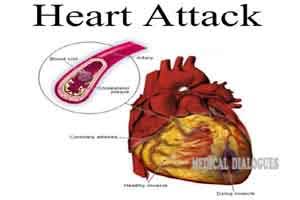- Home
- Editorial
- News
- Practice Guidelines
- Anesthesiology Guidelines
- Cancer Guidelines
- Cardiac Sciences Guidelines
- Critical Care Guidelines
- Dentistry Guidelines
- Dermatology Guidelines
- Diabetes and Endo Guidelines
- Diagnostics Guidelines
- ENT Guidelines
- Featured Practice Guidelines
- Gastroenterology Guidelines
- Geriatrics Guidelines
- Medicine Guidelines
- Nephrology Guidelines
- Neurosciences Guidelines
- Obs and Gynae Guidelines
- Ophthalmology Guidelines
- Orthopaedics Guidelines
- Paediatrics Guidelines
- Psychiatry Guidelines
- Pulmonology Guidelines
- Radiology Guidelines
- Surgery Guidelines
- Urology Guidelines
Restoring testosterone can cut heart attack risk: study

Washington: It is natural for testosterone levels to decline as men age. Now, a recent study has suggested that its supplementation can help you keep your heart safe.
The multi-year study from the Intermountain Medical Center Heart Institute in Salt Lake City shows that testosterone therapy helped elderly men with low testosterone levels and pre-existing coronary artery disease reduce their risks of major adverse cardiovascular events, including strokes, heart attacks and death.
The study showed that patients who received testosterone as part of their follow-up treatment fared much better than patients who didn't. Non-testosterone-therapy patients were 80 percent more likely to suffer an adverse event.
Co-director Brent Muhlestein said that the study shows that using testosterone replacement therapy to increase testosterone to normal levels in androgen-deficient men doesn't increase their risk of a serious heart attack or stroke. That was the case even in the highest-risk men, those with known pre-existing heart disease."
The results were presented at the American College of Cardiology's 65th Annual Scientific Session.

Disclaimer: This site is primarily intended for healthcare professionals. Any content/information on this website does not replace the advice of medical and/or health professionals and should not be construed as medical/diagnostic advice/endorsement or prescription. Use of this site is subject to our terms of use, privacy policy, advertisement policy. © 2020 Minerva Medical Treatment Pvt Ltd